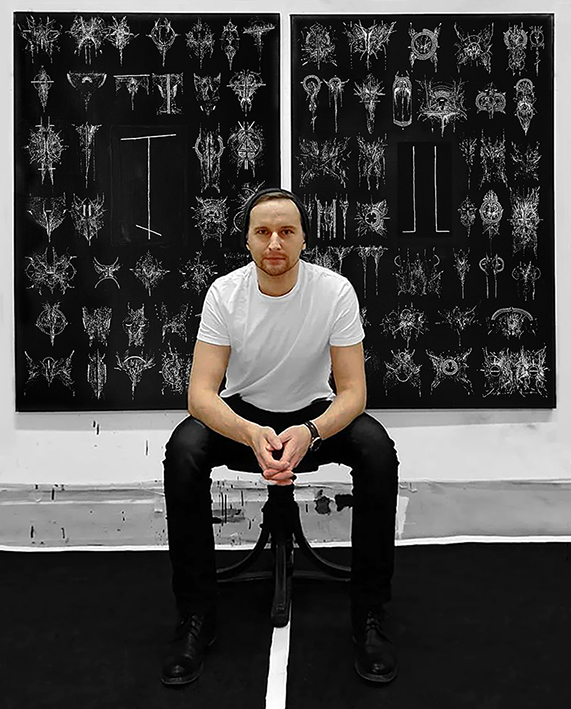
Statment
It's 1987. Białystok, eastern Poland. On the night of 1st to 2nd of November, exactly 6 minutes to midnight, I come into this world. Precisely then in the Catholic religion two holidays are celebrated: All Saints and All Souls' Day. Families commemorating their loved ones who passed away by lighting memory lights on their graves. In the Orthodox religion, the holiday falls a day later.
In a multicultural and multi-religious city, where groups of Catholics, Orthodox, Tatars, Jews and Muslims live side by side, does the artist absorb the atmosphere of the place where he was born from the first minutes of his life? Or maybe he works in opposition to it, rejecting tradition, going to another city, finding contemporary means of expression and modern themes?
The best way is to mix cultural roots with a fresh view on them. A fictional opposition only enlivens and introduces new threads into the work. I take great pleasure in adding to my language of abstraction the inspiration of Orthodox icons, creating modern, secular stories made only by the traditional method of alla prima drawing. The minimalist form: black and white, only the basic means of expression, such as lines, paradoxically give a great sense of freedom and peace. There is a lot of common with the meditative way of writing icons. In the drawings you can also find more primitive, Slavic and totemic threads. In dialogue with their ancestors. With the things which happened and those which will. With the rhythm of time and its consequences.
The rhythmic signs that I expressionally build are organized in discipline and order; they evoke a kind of universal, abstract typography which, due to its simplicity, can be read by people from many countries. Do I subconsciously envy Ludwik Zamenhof, who lived in my hometown, the creation of the international language of communication, Esperanto?
In art, I like things that combine contrasting elements. The sacred vs the profane. The contemporary vs the traditional. The expressional vs the disciplined. The strong vs the gentle. Talking at the same time about timeless, universal and spiritual things. Directed to our roots, who we are and who we will become. In a dynamically changing world, they look for truths that will pass the test of time.